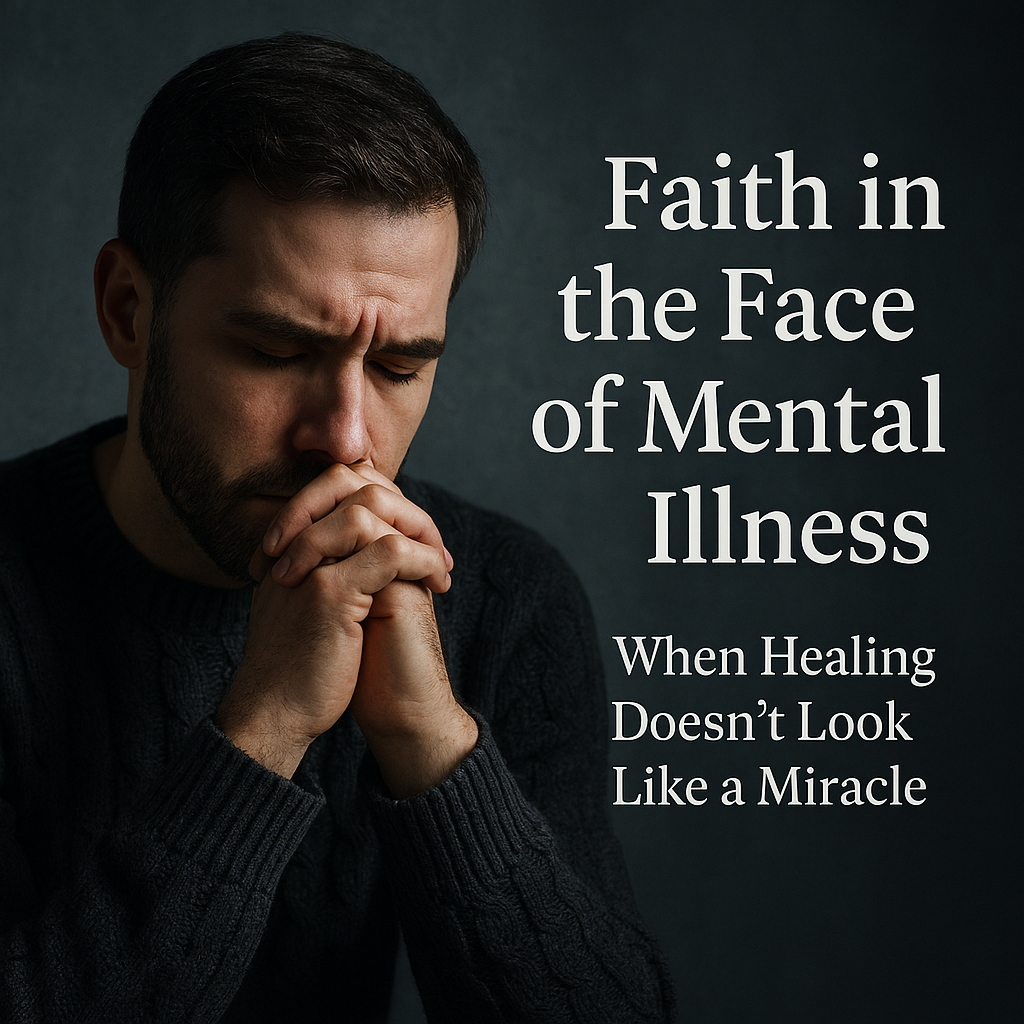Faith in the Face of Mental Illness: When Healing Doesn’t Look Like a Miracle
In many Christian circles, healing is often spoken of in terms of miracles—sudden deliverance, dramatic transformation, or the kind of breakthrough that leaves no doubt God has intervened. These stories are powerful, and they deserve to be told. But what happens when healing doesn’t look like that?
What happens when healing is slow, quiet, and incomplete? When the depression lingers, the anxiety flares up again, or the trauma resurfaces despite years of prayer and therapy?
For many believers living with mental illness, this tension between spiritual hope and clinical reality can feel like a spiritual failure. They may wonder: Am I not praying hard enough? Is my faith too weak? Why hasn’t God healed me like He healed others?
The Weight of Expectation
Faith communities, often unintentionally, can reinforce these questions. Testimonies of miraculous healing are celebrated—rightfully so—but they can also create a silent standard. Those whose healing journeys are long and complex may feel unseen, misunderstood, or even judged.
Mental illness doesn’t always fit neatly into the narrative of victory. It’s messy. It requires ongoing care, medication, boundaries, and sometimes a lifetime of management. And yet, that doesn’t make it any less sacred.
A Theology of Slow Healing
Scripture is full of stories of waiting—decades-long journeys, wilderness seasons, and unanswered prayers. Paul speaks of a “thorn in the flesh” that was never removed, despite his pleas. Jesus Himself wept, grieved, and withdrew to lonely places. These moments remind us that faith is not the absence of struggle, but the presence of God within it.
Healing can be incremental. It can come through therapy, medication, community, and spiritual practices. It can look like surviving another day, choosing hope again, or simply showing up to church when everything in you wants to stay home.
To the One Who Feels Unseen
If you’ve ever felt like your story doesn’t belong in the church bulletin or the Sunday sermon, hear this: your journey is valid. Your faith is not defined by the speed of your healing. You are not less spiritual because your brain needs support. You are not less loved because your prayers haven’t yielded instant results.
God is with you in the therapy room. He’s with you in the psychiatrist’s office. He’s with you in the sleepless nights.


